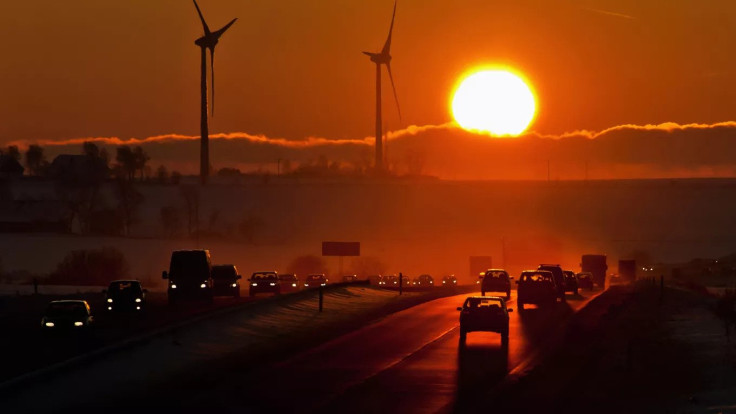Earth Experiences Unprecedented Climate Event: Breach of 1.5°C Warming Limit Lasts for a Year
The breach of the 1.5°C limit for a consecutive 12-month period is a concerning development that heightens fears about the pace and severity of climate change.

In a stark revelation that underscores the escalating urgency of addressing climate change, scientists confirm that the world has now endured a year-long breach of the critical 1.5°C warming limit, marking an unprecedented milestone in the battle against global temperature rise.
The 1.5°C threshold was established as a crucial target by the Paris Agreement, a treaty signed in 2015 where 195 nations pledged to tackle climate change.
This represents a critical juncture in averting the most catastrophic impacts of climate change.
Scientists and policymakers have long warned that surpassing this limit would trigger irreversible damage to ecosystems, intensify extreme weather events, and exacerbate the impacts of rising sea levels.
The breach of the 1.5°C limit for a consecutive 12-month period is a concerning development that heightens fears about the pace and severity of climate change.
Previously, brief breaches had occurred, but this extended period of surpassing the limit reflects a sustained and troubling trend.
This sobering revelation comes as a result of meticulous analysis by climate scientists worldwide.
Temperature records, satellite data, and other observational tools have been scrutinised to confirm the continuous breach of the 1.5°C threshold.
The data paints a grim picture of the Earth's warming trajectory, sounding an urgent call for decisive and immediate action to curb greenhouse gas emissions.
Prof Sir Bob Watson, a former chair of the UN's climate body, said: "This far exceeds anything that is acceptable. Look what's happened this year with only 1.5C - we've seen floods, we've seen droughts, we've seen heatwaves and wildfires all over the world."
The primary driver behind this prolonged breach is attributed to human activities, primarily the burning of fossil fuels, deforestation, and other industrial processes that release vast quantities of greenhouse gases into the atmosphere.
The cumulative effect of these activities has led to a steady rise in global temperatures, pushing the planet beyond the critical 1.5°C limit.
The consequences of this breach are far-reaching and multifaceted. One of the immediate impacts is the acceleration of ice melt in polar regions and the subsequent rise in sea levels.
Coastal communities, already grappling with the effects of climate change, are increasingly vulnerable to inundation and extreme weather events.
Furthermore, ecosystems across the globe are experiencing disruptions, with coral reefs, forests, and wildlife habitats facing unprecedented stress.
The prolonged breach of the 1.5°C limit poses a direct threat to biodiversity, as many species struggle to adapt to the rapidly changing climate conditions.
Scientists and climate experts emphasise that the implications of this milestone extend beyond the environmental realm.
The recent climate alert coincides with reports indicating a significant reversal in the Labour Party's stance, as they abandon their previous commitment to allocate £28 billion annually to their green investment plan.
The increased frequency and intensity of extreme weather events, such as hurricanes, droughts, and wildfires also contributed to the direct impact on human societies.
Vulnerable communities are disproportionately affected, facing challenges related to food security, water scarcity, and displacement.
If emissions persist at the present rate, the target set by the Paris Agreement to restrict long-term average warming to 1.5°C might be surpassed within the next ten years.
While this would represent a significant symbolic milestone, researchers emphasise that it wouldn't signify a sudden plunge into uncontrollable climate chaos.
Nonetheless, the repercussions of climate change would intensify, with each incremental rise in temperature amplifying the frequency and severity of extreme heatwaves, droughts, wildfires, and floods – phenomena witnessed over the past 12 months offering a preview of what could unfold.
As the world grapples with the reality of a year-long breach of the 1.5°C warming limit, the focus shifts to the upcoming global climate conferences and policy decisions that will shape the trajectory of climate action in the crucial years ahead.
The challenge is clear – humanity must act decisively to curb emissions, protect vulnerable ecosystems, and ensure a sustainable future for the planet.
© Copyright IBTimes 2025. All rights reserved.






















